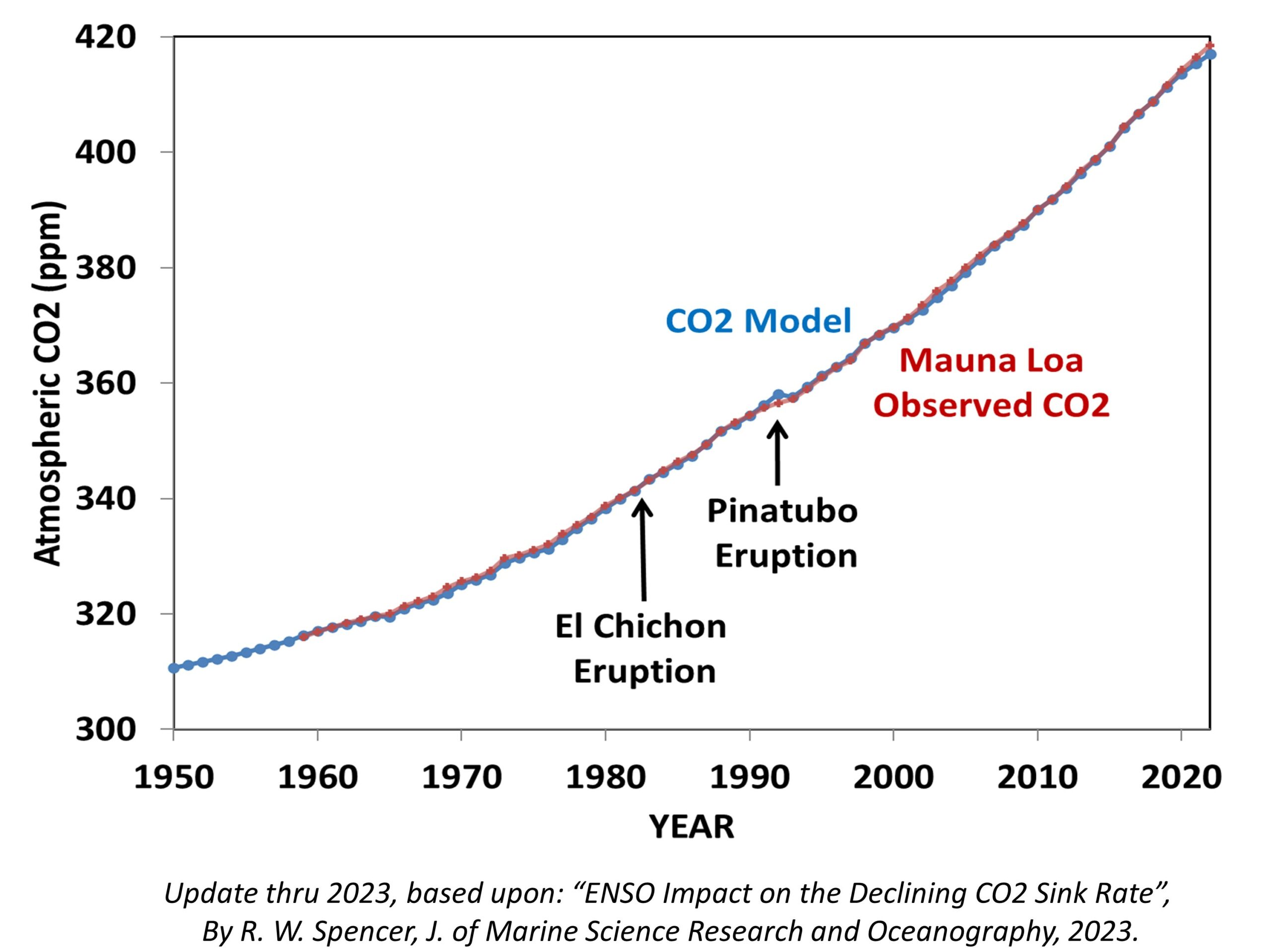by R. Spencer, Apr 18, 2024 in GlobalWarming
The goal of reaching “Net Zero” global anthropogenic emissions of carbon dioxide sounds overwhelmingly difficult. While humanity continues producing CO2 at increasing rates (with a temporary pause during COVID), how can we ever reach the point where these emissions start to fall, let alone reach zero by 2050 or 2060?
What isn’t being discussed (as far as I can tell) is the fact that atmospheric CO2 levels (which we will assume for the sake of discussion causes global warming) will start to fall even while humanity is producing lots of CO2.
Let me repeat that, in case you missed the point:
Atmospheric CO2 levels will start to fall even with modest reductions in anthropogenic CO2 emissions.
Why is that? The reason is due to something called the CO2 “sink rate”. It has been observed that the more CO2 there is in the atmosphere, the more quickly nature removes the excess. The NASA studies showing “global greening” in satellite imagery since the 1980s is evidence of that.
Last year I published a paper showing that the record of atmospheric CO2 at Mauna Loa, HI suggests that each year nature removes an average of 2% of the atmospheric excess above 295 ppm (parts per million). The purpose of the paper was to not only show how well a simple CO2 budget model fits the Mauna Loa CO2 measurements, but also to demonstrate that the common assumption that nature is becoming less able to remove “excess” CO2 from the atmosphere appears to be an artifact of El Nino and La Nina activity since monitoring began in 1959. As a result, that 2% sink rate has remained remarkably constant over the last 60+ years. (By the way, the previously popular CO2 “airborne fraction” has huge problems as a meaningful statistic, and I wish it had never been invented. If you doubt this, just assume CO2 emissions are cut in half and see what the computed airborne fraction does. It’s meaningless.)
Here’s my latest model fit to the Mauna Loa record through 2023, where I have added a stratospheric aerosol term to account for the fact that major volcanic eruptions actually *reduce* atmospheric CO2 due to increased photosynthesis from diffuse sunlight penetrating deeper into vegetation canopies:

What Would a “Modest” 1% per Year Reduction in Global CO2 Emissions Do?
…
